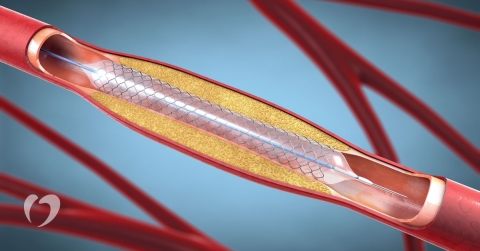What to Expect During and After Stent Placement

Stents are an important tool doctors use to treat heart disease. They are tiny mesh tubes used to open a narrow or partially blocked artery. Stents are often placed as a treatment for angina, which is recurring chest pain, and are also used in treating heart attacks. They can also be placed in narrow arteries to help reduce the risk of heart attack.
Here’s what to expect during and after stent placement.
How are stents used?
A narrow coronary artery with a buildup of plaque is a potential source of blockage that can cause pain, clots, and possibly a heart attack. Stents are used to widen the artery and restore blood flow to the heart.
Stents are typically placed during an angioplasty, in which a balloon catheter is used to open a narrow artery. Once in place, the balloon expands, which widens the artery for the placement of the stent. After placement, the stent stays in the body permanently to prop open the artery.
What to expect during a stent placement procedure
In most cases, general anesthesia is not needed for stent placement. You will be given medication to relax and a local anesthetic for the incision site. You may feel pressure during insertion but should not feel pain or feel the catheter being threaded to the heart. An IV will deliver medication and fluids, and the medical team will monitor your vital signs throughout the procedure.
What to expect after a stent placement procedure
For some patients, stent placement is an outpatient procedure while others may require an overnight stay in the hospital. Your medical team will monitor you closely after the procedure to ensure proper recovery.
Restrictions after the procedure include avoiding strenuous exercise and heavy lifting for several days. Most patients are back to normal activity within a week.
After an angioplasty, there is a small risk of blood clots. Your doctor may prescribe a blood thinning medication to reduce this risk. Minor bruising or bleeding may occur at the incision site, but call your doctor if bruising or bleeding becomes severe or if you have any questions about your incision.




